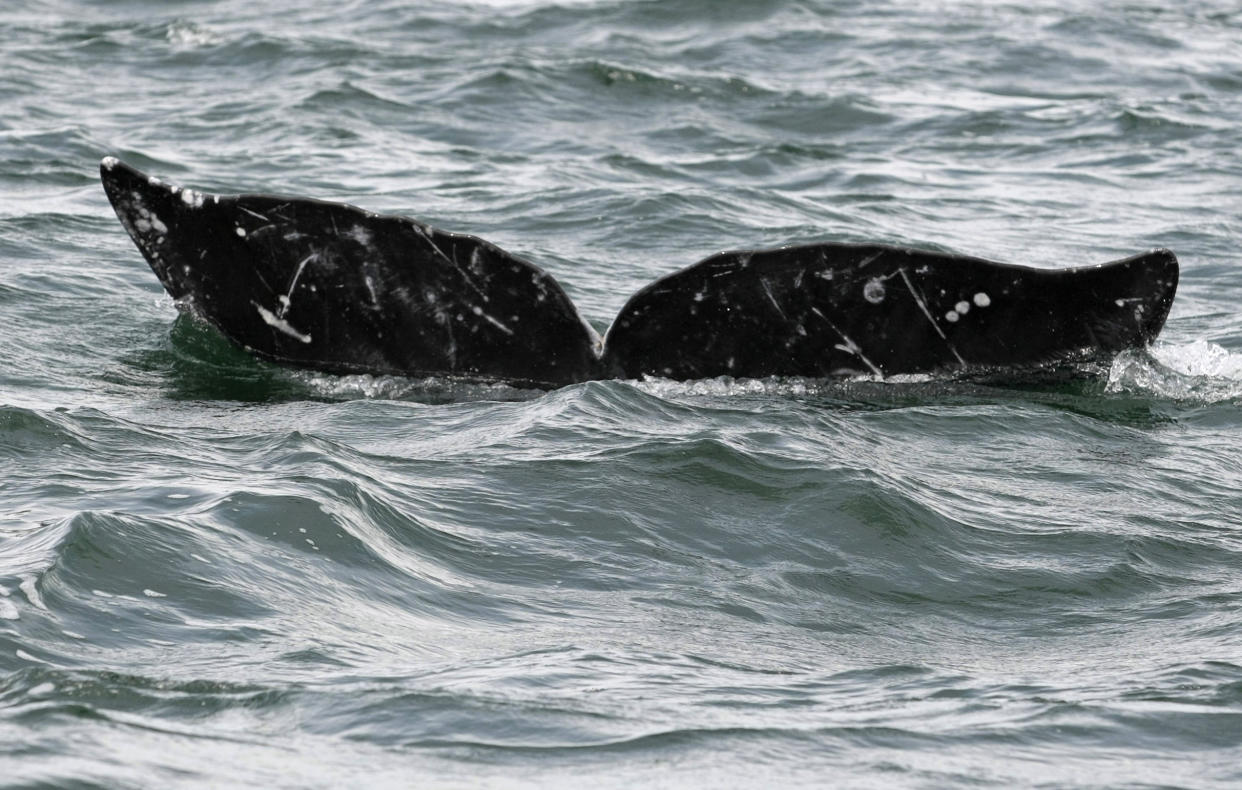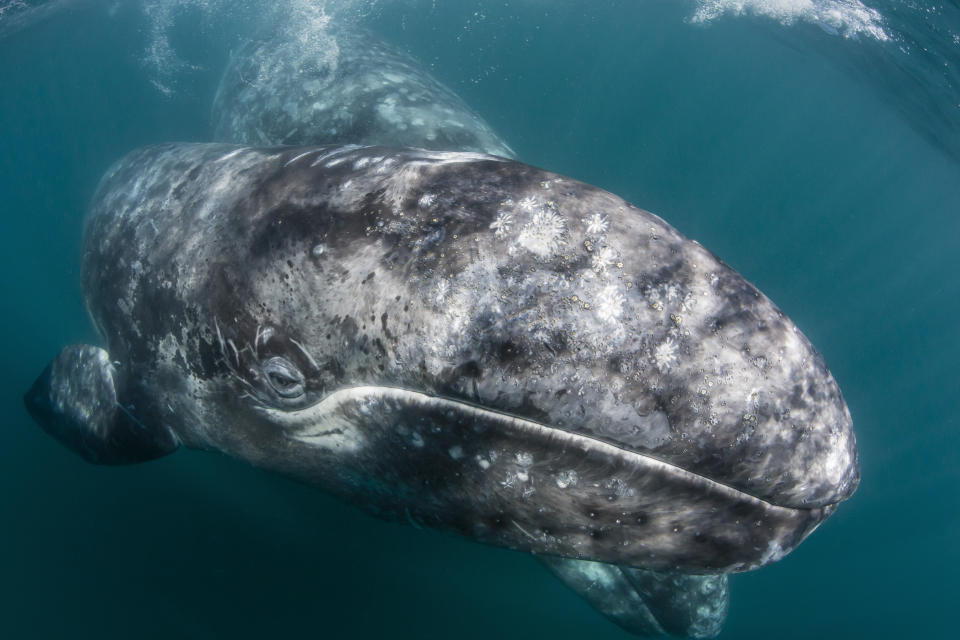Solar storms 'could cause grey whales to become stranded’, researchers say

Solar storms and sunspots may cause grey whales to become disoriented, leading to the animals becoming stranded, researchers believe.
The finding suggests that migrating animals may use a magnetic sense to navigate, which is disrupted by solar activity, according to scientists at Duke University in Durham, North Carolina.
They analysed 31 years of data on grey whale strandings.
The researchers found that grey whales are more than five times more likely to become stranded when there is high solar activity.
READ MORE
Stars ‘need a partner’ to set off universe’s brightest explosions
Meet the adorable cat with two different faces
World’s southernmost reef hit by coral bleaching
Binary Earth-sized planets possible around distant stars
Scientists are unsure if whales use magnetoreception to navigate, but it seems likely because the ocean offers so few other clues, researcher Jesse Granger told Space.com.
Granger said: “Whales are stranding a lot more often when the sun is doing crazy stuff.”
Granger added that while most of the rays from sunspots are blocked or scattered by Earth's atmosphere, some radio waves make it through.
“There's a huge chunk in the radio frequency (RF) wave range that does make it all the way to the Earth and it's been shown in several species that RF noise can disrupt a magnetic orientation ability."
This week, experts are investigating the first confirmed stranding of an orca in England and Wales for almost 20 years, the Zoological Society of London (ZSL) said.
The juvenile male killer whale, approximately 15ft long, became stranded in salt marsh in The Wash on the east coast of England.

It is the first confirmed orca stranding that the Cetacean Strandings Investigation Programme, of which ZSL is a partner, has investigated in England and Wales since 2001.
Orcas are a priority species for research by ZSL as they are top predators which can absorb significant concentrations of marine pollutants such as chemicals known as PCBs which accumulate as they go up the food chain.
ZSL's Rob Deaville and Matt Perkins collected blubber, liver, muscle and kidney samples from the marine mammal, which was internally mostly intact despite its apparently decomposed condition having probably died weeks ago.
Tests will analyse the samples for marine contaminants, while genetic analysis will help determine which population the animal came from and teeth have been collected to accurately assess its age.
The experts said there was no evidence of recent feeding as its stomachs were largely empty.
The team found a large fragment of plastic in the first stomach, although it had not killed the orca as the stomach was not blocked.

 Yahoo News
Yahoo News 
